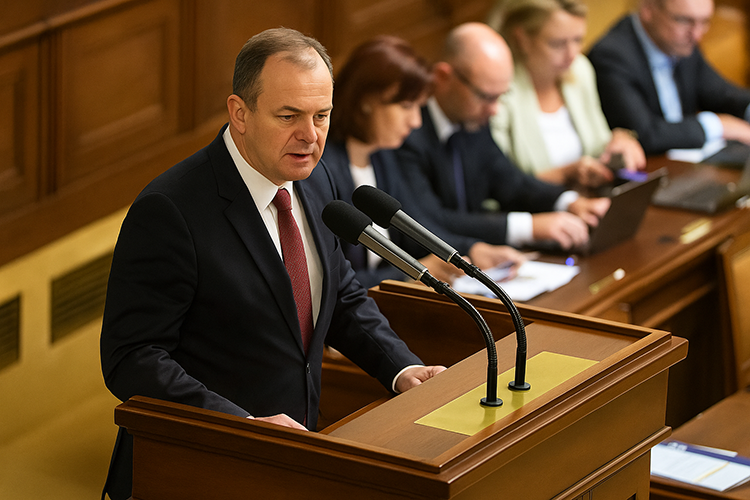Slovakia Pushes Through Third Round of Fiscal Tightening
Slovakia’s parliament has given the green light to the government’s third effort in less than two years to rein in its public finances. The latest package is designed to add several billion euros to the state coffers and slow the country’s widening deficit, which remains among the largest in the European Union.
The measures will touch nearly every group of taxpayers. Employees and the self-employed face higher health payments from early 2026, while those on higher salaries will see additional income tax obligations. Entrepreneurs and sole traders will also feel the pinch, as the calculation of levies shifts upward, pushing up their operating costs.
The ruling coalition has also decided that Slovaks will spend more time at work. In 2026, three public holidays are to be suspended, with the government arguing that more working days will lead to stronger productivity and tax revenues. While ministers insist the change is temporary for two of the dates, it has already sparked strong criticism from opposition MPs and unions, who describe it as an attack on workers’ rights.
Some of the more controversial ideas floated in earlier drafts, such as raising VAT on basic food items, were ultimately dropped. Lawmakers did, however, approve a freeze on their own salaries and gave the cabinet more flexibility in setting gambling charges, which officials say will give the budget a modest additional boost.
This is not the first attempt at belt-tightening by the current government. Previous rounds included a tax on bank transactions and other measures intended to improve revenue flows. Together, the three packages are supposed to bring the deficit below four percent of GDP in 2026 and help Slovakia return to the EU’s fiscal rules in the coming years.
Critics, however, see risks in the government’s approach. Business groups warn that pushing up the tax wedge will reduce the country’s competitiveness and weigh on investment. They argue that a smaller working population is already carrying the financial burden for millions of dependents and that further levies could dampen long-term growth.
Public reaction has been sharp. Demonstrations against the consolidation plan were held in towns and cities across the country in mid-September, drawing thousands of participants. Despite the protests, the coalition pushed the package through parliament with a comfortable majority of 78 votes, brushing aside amendments put forward by the opposition.
For now, the government insists the new measures are unavoidable to protect financial stability and investor confidence. Yet for households, businesses and employers, the practical consequences—higher deductions, altered costs, and fewer days off—will be felt from next year. The debate over whether this represents a path to stability or a drag on future growth is far from over.








